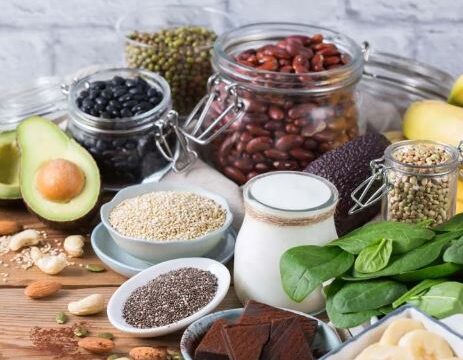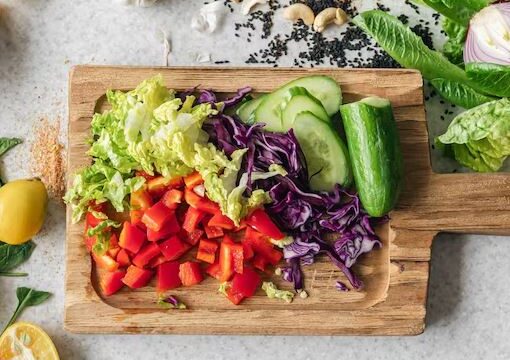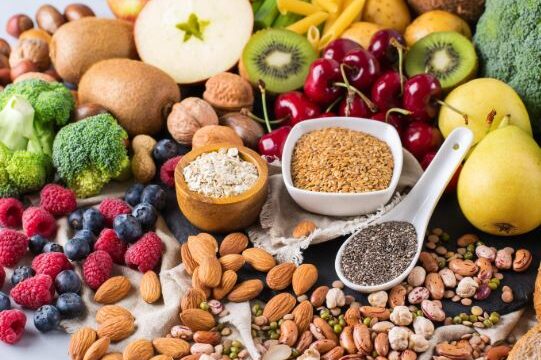In recent years, there has been growing curiosity about the connection between gut health and emotional well-being.
While many people have long associated probiotics with digestion, researchers are now exploring their potential influence on the mind.
This relationship, often called the “gut-brain connection,” highlights how certain foods that support healthy gut bacteria may also play a role in easing anxiety.
Probiotics are live microorganisms, mostly beneficial bacteria, that help maintain balance in the gut. They are found naturally in fermented foods such as yogurt, kefir, sauerkraut, kimchi, miso, and tempeh. When consumed regularly, these foods can contribute to a thriving gut microbiome—the complex community of bacteria living in the digestive system. A healthy microbiome not only helps with digestion but may also influence mood, stress response, and mental clarity. The gut and the brain are constantly in communication through what scientists call the gut-brain axis. This pathway involves signals transmitted via the nervous system, immune system, and hormones. One major player in this process is the vagus nerve, which acts as a communication highway between the digestive tract and the brain. When the gut is in balance, it sends calm and steady signals. However, when the gut microbiome becomes imbalanced—perhaps due to stress, lack of sleep, or a diet high in processed foods—it can send distress signals that may contribute to anxiety or mood disturbances. Probiotic foods appear to help restore this balance. By increasing the number of beneficial bacteria, they can support the production of important neurotransmitters like serotonin and gamma-aminobutyric acid (GABA). Both are known to influence mood and relaxation. Interestingly, a large portion of serotonin—the chemical often associated with feelings of happiness—is produced in the gut. When gut health improves, the body may regulate serotonin production more effectively, leading to a calmer state of mind. Some studies have explored the effect of probiotics on anxiety symptoms. Participants who consumed probiotic-rich foods or supplements often reported feeling more emotionally balanced compared to those who did not. Although more research is needed to fully understand the extent of probiotics’ impact on mental health, these findings suggest that nurturing the gut could be one of the most natural ways to support emotional well-being. It is important to note that probiotics are not a quick fix or a substitute for professional care. Instead, they are best viewed as part of a lifestyle approach to wellness. By combining a probiotic-rich diet with balanced nutrition, physical activity, and mindfulness, individuals can create a foundation for both gut and mental health. Adding probiotic foods to your daily meals can be simple and enjoyable. Yogurt with live cultures makes a nourishing breakfast when paired with fruit and oats. Kefir can be used as a smoothie base or enjoyed plain as a refreshing drink. Fermented vegetables such as kimchi or sauerkraut can be served alongside whole-grain dishes or used to top salads. Miso soup or tempeh stir-fry offers comforting and flavorful ways to bring probiotics into lunch or dinner. Even small servings of these foods, when eaten regularly, can support a balanced microbiome. Equally important are prebiotic foods, which act as nourishment for probiotics. Prebiotics are found in fiber-rich foods such as bananas, onions, garlic, leeks, and asparagus. When both probiotics and prebiotics are present in the diet, they work together to create an environment in which beneficial bacteria can thrive. This balance helps the digestive system stay strong and may indirectly support emotional resilience. Many people notice subtle but positive changes after consistently incorporating probiotic foods into their routines. Some report feeling more comfortable after meals or experiencing fewer digestive issues. Others mention a greater sense of calm or improved focus. While these effects vary from person to person, they point to the powerful connection between what we eat and how we feel. Lifestyle factors can either strengthen or weaken the gut-brain connection. High stress levels, lack of sleep, and excessive caffeine or sugar intake may all disrupt gut balance. Supporting gut health through mindful eating, gentle physical activity, and relaxation techniques like deep breathing or meditation can help reduce anxiety and create overall emotional steadiness. The modern American diet often includes convenience foods that lack live cultures and natural fibers. By reintroducing traditional fermented foods, people can bring their eating habits closer to how humans have nourished themselves for centuries. Historically, fermentation was used as a preservation method, but it also offered natural probiotic benefits that supported the digestive and immune systems. In today’s fast-paced environment, returning to these foods can provide both nutritional value and emotional grounding. For those new to probiotics, it can help to start slowly. Introducing small portions first allows the body to adjust comfortably. Drinking plenty of water and maintaining a balanced diet rich in vegetables, whole grains, and lean proteins will further support this process. Choosing products labeled with “live and active cultures” ensures that the probiotics are viable and effective. The relationship between probiotics and reduced anxiety underscores the importance of viewing nutrition as more than fuel—it is also a source of harmony between body and mind. A nourished gut sends signals of stability and ease throughout the nervous system, helping the mind respond more calmly to daily stressors. This gentle balance reminds us that self-care can begin with something as simple as what we choose to put on our plates. Incorporating probiotic foods into a routine does not require major changes. A cup of yogurt at breakfast, a spoonful of sauerkraut with lunch, or a warm bowl of miso soup in the evening can all add up over time. These small steps can gradually build a more resilient digestive system, a clearer mind, and a more relaxed emotional state. The science of probiotics continues to evolve, but one thing is becoming clear: a healthy gut may hold one of the keys to emotional balance. By treating the gut with care and nourishing it with probiotic-rich foods, we give the body the tools it needs to support a calmer, steadier outlook on life. The connection between gut health and peace of mind may be one of nature’s simplest yet most powerful partnerships—and it begins with the food on our table.






